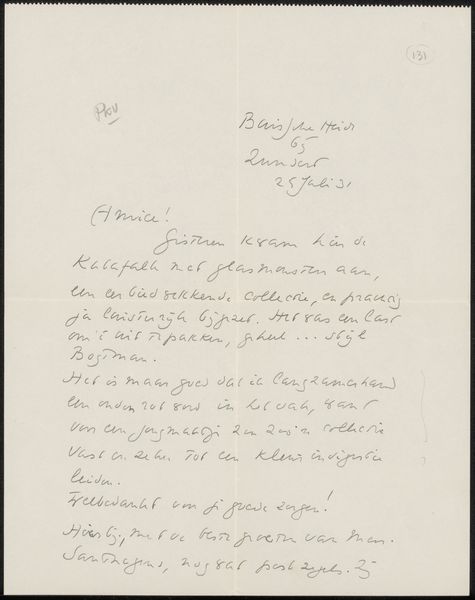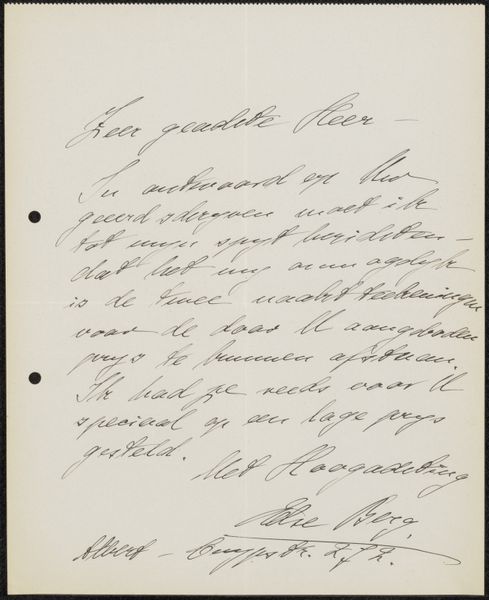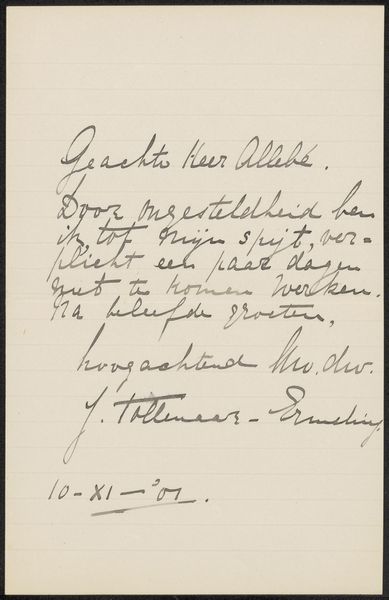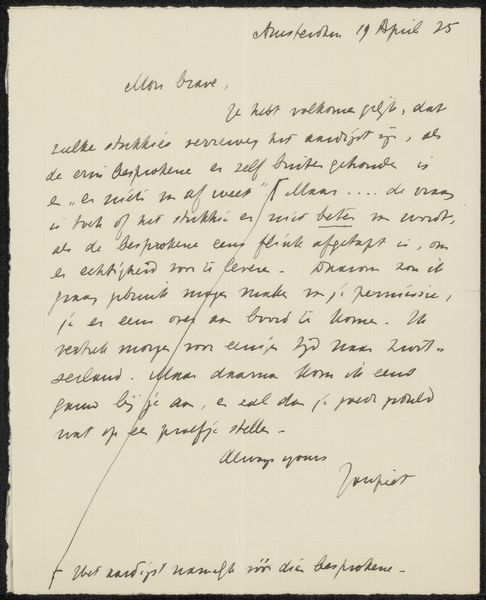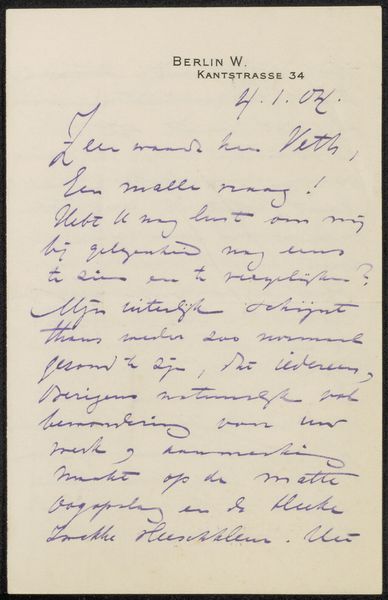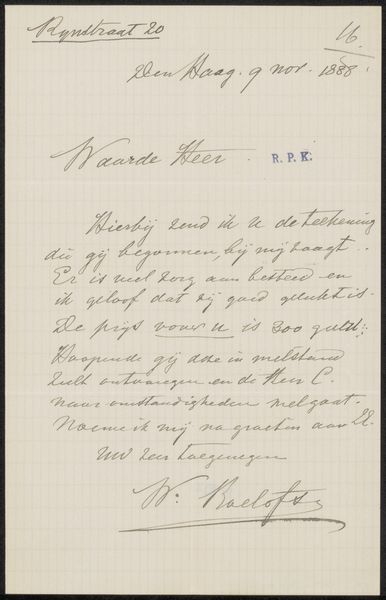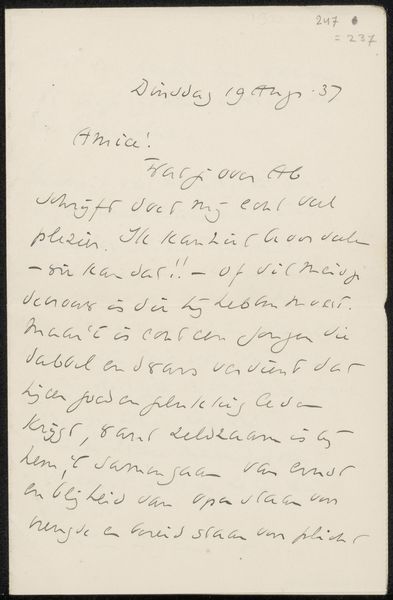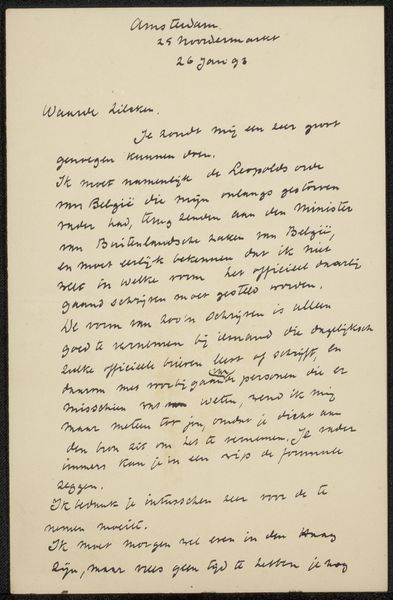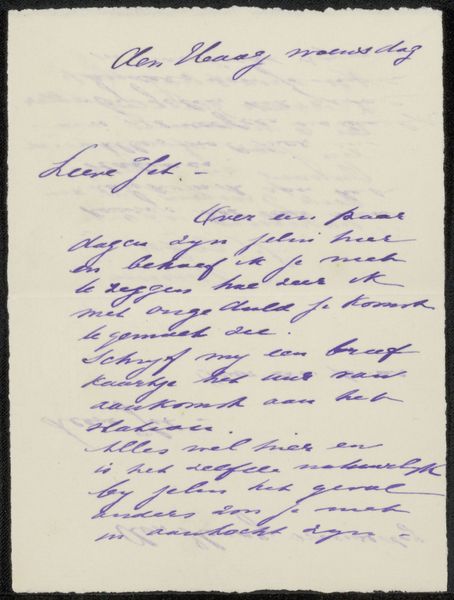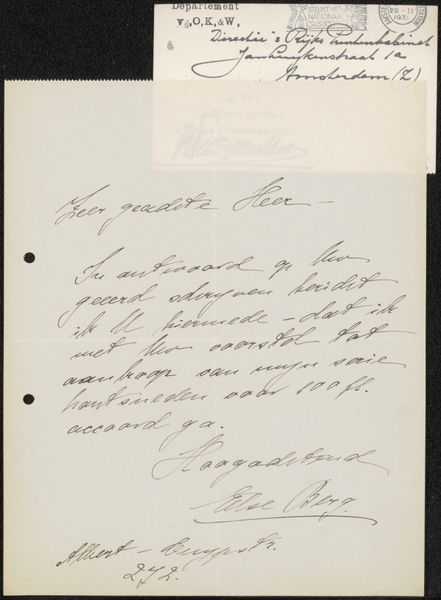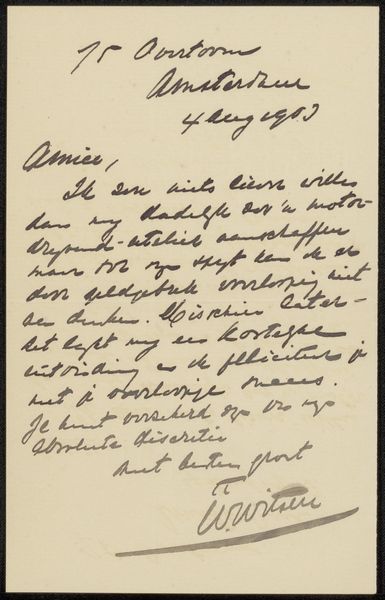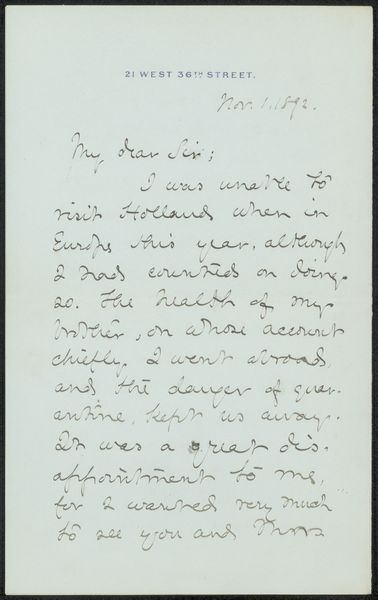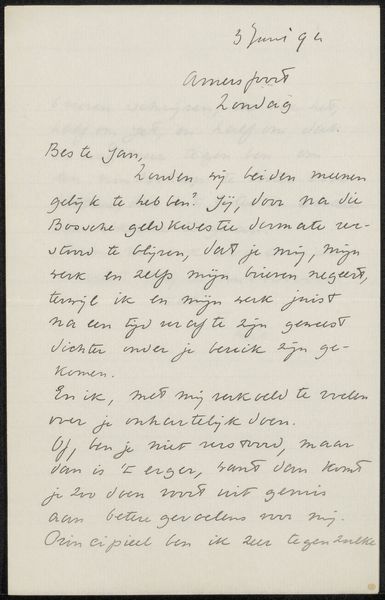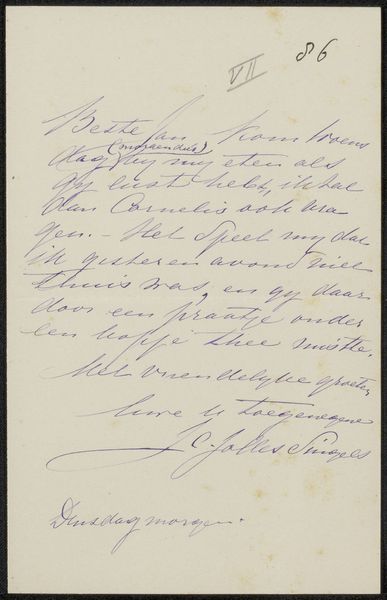
drawing, paper, ink
#
portrait
#
drawing
#
script typography
#
pen illustration
#
old engraving style
#
hand drawn type
#
paper
#
ink
#
hand-drawn typeface
#
ink drawing experimentation
#
pen-ink sketch
#
pen work
#
sketchbook drawing
#
coloring book page
Copyright: Rijks Museum: Open Domain
Curator: This is “Brief aan Jan Veth,” possibly from 1913, a pen and ink drawing on paper by Karel Johan Lodewijk Alberdingk Thijm. Editor: The delicate, almost frail handwriting creates an immediate sense of intimacy and fragility. It’s just a letter, but displayed like a work of art. I’m curious, what draws your attention to it, given your background? Curator: Well, beyond the personal message, which is now obscured to us, I am drawn to the power dynamic inherent in the act of displaying personal correspondence in a public institution. How does turning a private letter into a museum piece affect its meaning? Does it become more about the sender and receiver, their social standing, and the institution’s valuation of that connection? Editor: So, the social implications of its presentation become as important as its content. Curator: Precisely. We must consider how museums create value and how exhibiting something like this transforms its historical context. Do we even know why this letter was saved, archived, and eventually deemed worthy of display? Editor: That's a great point! What narratives are privileged through choices about display and archiving? Does presenting it this way, outside of its intended personal context, influence how we perceive its artistic merit? Curator: It fundamentally changes its function, and thus our reading of it. The museum positions it within a lineage of valued artifacts, which influences the public's perception. Think about how institutions, like this one, helped shape what we consider "artistic" or historically significant in the first place. Editor: I see what you mean. I went into this thinking it was a simple handwritten note. Now, I see it’s an artifact loaded with questions about the role of institutions. Thanks! Curator: The transformation of the mundane into the meaningful - that's the core of much art historical inquiry, I think.
Comments
No comments
Be the first to comment and join the conversation on the ultimate creative platform.
